Esoteric Christianity, or The Lesser Mysteries - Annie Besant (ebook reader that looks like a book .TXT) 📗
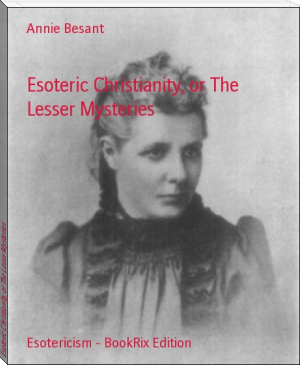
- Author: Annie Besant
Book online «Esoteric Christianity, or The Lesser Mysteries - Annie Besant (ebook reader that looks like a book .TXT) 📗». Author Annie Besant
the teachings given, and other details. Certain passages in the "New Testament" would remain entirely obscure, if it were not for the light thrown on them by the definite statements of the Fathers and Bishops of the Church, but in that light they became clear and intelligible.
It would indeed have been strange had it been otherwise when we consider the lines of religious thought which influenced primitive Christianity. Allied to the Hebrews, the Persians, and the Greeks, tinged by the older faiths of India, deeply coloured by Syrian and Egyptian thought, this later branch of the great religious stem could not do other than again re-affirm the ancient traditions, and place in the grasp of western races the full treasure of the ancient teaching. "The faith once delivered to the saints" would indeed have been shorn of its chief value if, when delivered to the West, the pearl of esoteric teaching had been withheld.
The first evidence to be examined is that of the "New Testament." For our purpose we may put aside all the vexed questions of different readings and different authors, that can only be decided by scholars. Critical scholarship has much to say on the age of MSS., on the authenticity of documents, and so on. But we need not concern ourselves with these. We may accept the canonical Scriptures, as showing what was believed in the early Church as to the teaching of the Christ and of His immediate followers, and see what they say as to the existence of a secret teaching given only to the few. Having seen the words put into the mouth of Jesus Himself, and regarded by the Church as of supreme authority, we will look at the writings of the great apostle S. Paul; then we will consider the statements made by those who inherited the apostolic tradition and guided the Church during the first centuries A.D. Along this unbroken line of tradition and written testimony the proposition that Christianity had a hidden side can be established. We shall further find that the Lesser Mysteries of mystic interpretation can be traced through the centuries to the beginning of the 19th century, and that though there were no Schools of Mysticism recognised as preparatory to Initiation, after the disappearance of the Mysteries, yet great Mystics, from time to time, reached the lower stages of exstasy, by their own sustained efforts, aided doubtless by invisible Teachers.
The words of the Master Himself are clear and definite, and were, as we shall see, quoted by Origen as referring to the secret teaching preserved in the Church. "And when he was alone, they that were about Him with the twelve asked of Him the parable. And He said unto them, 'Unto you it is given to know the mystery of the kingdom of God, but unto them that are without, all these things are done in parables.'" And later: "With many such parables spake He the word unto them, as they were able to hear it. But without a parable spake He not unto them; and when they were alone He expounded all things to His disciples."[41] Mark the significant words, "when they were alone," and the phrase, "them that are without." So also in the version of S. Matthew: "Jesus sent the multitude away, and went into the house; and His disciples came unto Him." These teachings given "in the house," the innermost meanings of His instructions, were alleged to be handed on from teacher to teacher. The Gospel gives, it will be noted, the allegorical mystic explanation, that which we have called The Lesser Mysteries, but the deeper meaning was said to be given only to the Initiates.
Again, Jesus tells even His apostles: "I have yet many things to say to you, but ye cannot bear them now."[42] Some of them were probably said after His death, when He was seen of His disciples, "speaking of the things pertaining to the kingdom of God."[43] None of these have been publicly recorded, but who can believe that they were neglected or forgotten, and were not handed down as a priceless possession? There was a tradition in the Church that He visited His apostles for a considerable period after His death, for the sake of giving them instruction--a fact that will be referred to later--and in the famous Gnostic treatise, the _Pistis Sophia_, we read: "It came to pass, when Jesus had risen from the dead, that He passed eleven years speaking with His disciples and instructing them."[44] Then there is the phrase, which many would fain soften and explain away: "Give not that which is holy to the dogs, neither cast ye your pearls before swine"[45]--a precept which is of general application indeed, but was considered by the early Church to refer to the secret teachings. It should be remembered that the words had not the same harshness of sound in the ancient days as they have now; for the words "dogs"--like "the vulgar," "the profane"--was applied by those within a certain circle to all who were outside its pale, whether by a society or association, or by a nation--as by the Jews to all Gentiles.[46] It was sometimes used to designate those who were outside the circle of Initiates, and we find it employed in that sense in the early Church; those who, not having been initiated into the Mysteries, were regarded as being outside "the kingdom of God," or "the spiritual Israel," had this name applied to them.
There were several names, exclusive of the term "The Mystery," or "The Mysteries," used to designate the sacred circle of the Initiates or connected with Initiation: "The Kingdom," "The Kingdom of God," "The Kingdom of Heaven," "The Narrow Path," "The Strait Gate," "The Perfect," "The Saved," "Life Eternal," "Life," "The Second Birth," "A Little One," "A Little Child." The meaning is made plain by the use of these words in early Christian writings, and in some cases even outside the Christian pale. Thus the term, "The Perfect," was used by the Essenes, who had three orders in their communities: the Neophytes, the Brethren, and the Perfect--the latter being Initiates; and it is employed generally in that sense in old writings. "The Little Child" was the ordinary name for a candidate just initiated, _i.e._, who had just taken his "second birth."
When we know this use, many obscure and otherwise harsh passages become intelligible. "Then said one unto Him: Lord, are there few that be saved? And He said unto them: Strive to enter in at the strait gate; for many, I say unto you, will seek to enter in and shall not be able."[47] If this be applied in the ordinary Protestant way to salvation from everlasting hell-fire, the statement becomes incredible, shocking. No Saviour of the world can be supposed to assert that many will seek to avoid hell and enter heaven, but will not be able to do so. But as applied to the narrow gateway of Initiation and to salvation from rebirth, it is perfectly true and natural. So again: "Enter ye in at the strait gate; for wide is the gate and broad is the way that leadeth to destruction, and many there be which go in thereat; because strait is the gate and narrow is the way which leadeth unto life; and few there be that find it."[48] The warning which immediately follows against the false prophets, the teachers of the dark Mysteries, is most apposite in this connection. No student can miss the familiar ring of these words used in this same sense in other writings. The "ancient narrow way" is familiar to all; the path "difficult to tread as the sharp edge of a razor,"[49] already mentioned; the going "from death to death" of those who follow the flower-strewn path of desires, who do not know God; for those men only become immortal and escape from the wide mouth of death, from ever repeated destruction, who have quitted all desires.[50] The allusion to death is, of course, to the repeated births of the soul into gross material existence, regarded always as "death" compared to the "life" of the higher and subtler worlds.
This "Strait Gate" was the gateway of Initiation, and through it a candidate entered "The Kingdom." And it ever has been, and must be, true that only a few can enter that gateway, though myriads--an exceedingly "great multitude, which no man could number,"[51] not a few--enter into the happiness of the heaven-world. So also spoke another great Teacher, nearly three thousand years earlier: "Among thousands of men scarce one striveth for perfection; of the successful strivers scarce one knoweth me in essence."[52] For the Initiates are few in each generation, the flower of humanity; but no gloomy sentence of everlasting woe is pronounced in this statement on the vast majority of the human race. The saved are, as Proclus taught,[53] those who escape from the circle of generation, within which humanity is bound.
In this connection we may recall the story of the young man who came to Jesus, and, addressing Him as "Good Master," asked how he might win eternal life--the well-recognised liberation from rebirth by knowledge of God.[54] His first answer was the regular exoteric precept: "Keep the commandments." But when the young man answered: "All these things have I kept from my youth up;" then, to that conscience free from all knowledge of transgression, came the answer of the true Teacher: "If thou wilt be perfect, go and sell that thou hast, and give to the poor, and thou shalt have treasure in heaven; and come and follow me." "If thou wilt be perfect," be a member of the Kingdom, poverty and obedience must be embraced. And then to His own disciples Jesus explains that a rich man can hardly enter the Kingdom of Heaven, such entrance being more difficult than for a camel to pass through the eye of a needle; with men such entrance could not be, with God all things were possible.[55] Only God in man can pass that barrier.
This text has been variously explained away, it being obviously impossible to take it in its surface meaning, that a rich man cannot enter a post-mortem state of happiness. Into that state the rich man may enter as well as the poor, and the universal practice of Christians shows that they do not for one moment believe that riches imperil their happiness after death. But if the real meaning of the Kingdom of Heaven be taken, we have the expression of a simple and direct fact. For that knowledge of God which is Eternal Life[56] cannot be gained till everything earthly is surrendered, cannot be learned until everything has been sacrificed. The man must give up not only earthly wealth, which henceforth may only pass through his hands as steward, but he must give up his inner wealth as well, so far as he holds it as his own against the world; until he is stripped naked he cannot pass the narrow gateway. Such has ever been a condition of Initiation, and "poverty, obedience, chastity," has been the vow of the candidate.
The "second birth" is another well-recognised term for Initiation; even now in India the higher castes are called "twice-born," and the ceremony that makes them twice-born is a ceremony of Initiation--mere husk truly, in these modern days, but the "pattern of things in the heavens."[57] When Jesus is speaking to Nicodemus, He states that "Except a man be born again, he cannot see the kingdom of God," and this birth is spoken of as that "of water and the Spirit;"[58] this is the first Initiation; a later one is that of "the Holy Ghost and fire,"[59] the baptism of the Initiate in his manhood, as the first is that of birth, which welcomes him as "the Little Child" entering the Kingdom.[60] How thoroughly this
It would indeed have been strange had it been otherwise when we consider the lines of religious thought which influenced primitive Christianity. Allied to the Hebrews, the Persians, and the Greeks, tinged by the older faiths of India, deeply coloured by Syrian and Egyptian thought, this later branch of the great religious stem could not do other than again re-affirm the ancient traditions, and place in the grasp of western races the full treasure of the ancient teaching. "The faith once delivered to the saints" would indeed have been shorn of its chief value if, when delivered to the West, the pearl of esoteric teaching had been withheld.
The first evidence to be examined is that of the "New Testament." For our purpose we may put aside all the vexed questions of different readings and different authors, that can only be decided by scholars. Critical scholarship has much to say on the age of MSS., on the authenticity of documents, and so on. But we need not concern ourselves with these. We may accept the canonical Scriptures, as showing what was believed in the early Church as to the teaching of the Christ and of His immediate followers, and see what they say as to the existence of a secret teaching given only to the few. Having seen the words put into the mouth of Jesus Himself, and regarded by the Church as of supreme authority, we will look at the writings of the great apostle S. Paul; then we will consider the statements made by those who inherited the apostolic tradition and guided the Church during the first centuries A.D. Along this unbroken line of tradition and written testimony the proposition that Christianity had a hidden side can be established. We shall further find that the Lesser Mysteries of mystic interpretation can be traced through the centuries to the beginning of the 19th century, and that though there were no Schools of Mysticism recognised as preparatory to Initiation, after the disappearance of the Mysteries, yet great Mystics, from time to time, reached the lower stages of exstasy, by their own sustained efforts, aided doubtless by invisible Teachers.
The words of the Master Himself are clear and definite, and were, as we shall see, quoted by Origen as referring to the secret teaching preserved in the Church. "And when he was alone, they that were about Him with the twelve asked of Him the parable. And He said unto them, 'Unto you it is given to know the mystery of the kingdom of God, but unto them that are without, all these things are done in parables.'" And later: "With many such parables spake He the word unto them, as they were able to hear it. But without a parable spake He not unto them; and when they were alone He expounded all things to His disciples."[41] Mark the significant words, "when they were alone," and the phrase, "them that are without." So also in the version of S. Matthew: "Jesus sent the multitude away, and went into the house; and His disciples came unto Him." These teachings given "in the house," the innermost meanings of His instructions, were alleged to be handed on from teacher to teacher. The Gospel gives, it will be noted, the allegorical mystic explanation, that which we have called The Lesser Mysteries, but the deeper meaning was said to be given only to the Initiates.
Again, Jesus tells even His apostles: "I have yet many things to say to you, but ye cannot bear them now."[42] Some of them were probably said after His death, when He was seen of His disciples, "speaking of the things pertaining to the kingdom of God."[43] None of these have been publicly recorded, but who can believe that they were neglected or forgotten, and were not handed down as a priceless possession? There was a tradition in the Church that He visited His apostles for a considerable period after His death, for the sake of giving them instruction--a fact that will be referred to later--and in the famous Gnostic treatise, the _Pistis Sophia_, we read: "It came to pass, when Jesus had risen from the dead, that He passed eleven years speaking with His disciples and instructing them."[44] Then there is the phrase, which many would fain soften and explain away: "Give not that which is holy to the dogs, neither cast ye your pearls before swine"[45]--a precept which is of general application indeed, but was considered by the early Church to refer to the secret teachings. It should be remembered that the words had not the same harshness of sound in the ancient days as they have now; for the words "dogs"--like "the vulgar," "the profane"--was applied by those within a certain circle to all who were outside its pale, whether by a society or association, or by a nation--as by the Jews to all Gentiles.[46] It was sometimes used to designate those who were outside the circle of Initiates, and we find it employed in that sense in the early Church; those who, not having been initiated into the Mysteries, were regarded as being outside "the kingdom of God," or "the spiritual Israel," had this name applied to them.
There were several names, exclusive of the term "The Mystery," or "The Mysteries," used to designate the sacred circle of the Initiates or connected with Initiation: "The Kingdom," "The Kingdom of God," "The Kingdom of Heaven," "The Narrow Path," "The Strait Gate," "The Perfect," "The Saved," "Life Eternal," "Life," "The Second Birth," "A Little One," "A Little Child." The meaning is made plain by the use of these words in early Christian writings, and in some cases even outside the Christian pale. Thus the term, "The Perfect," was used by the Essenes, who had three orders in their communities: the Neophytes, the Brethren, and the Perfect--the latter being Initiates; and it is employed generally in that sense in old writings. "The Little Child" was the ordinary name for a candidate just initiated, _i.e._, who had just taken his "second birth."
When we know this use, many obscure and otherwise harsh passages become intelligible. "Then said one unto Him: Lord, are there few that be saved? And He said unto them: Strive to enter in at the strait gate; for many, I say unto you, will seek to enter in and shall not be able."[47] If this be applied in the ordinary Protestant way to salvation from everlasting hell-fire, the statement becomes incredible, shocking. No Saviour of the world can be supposed to assert that many will seek to avoid hell and enter heaven, but will not be able to do so. But as applied to the narrow gateway of Initiation and to salvation from rebirth, it is perfectly true and natural. So again: "Enter ye in at the strait gate; for wide is the gate and broad is the way that leadeth to destruction, and many there be which go in thereat; because strait is the gate and narrow is the way which leadeth unto life; and few there be that find it."[48] The warning which immediately follows against the false prophets, the teachers of the dark Mysteries, is most apposite in this connection. No student can miss the familiar ring of these words used in this same sense in other writings. The "ancient narrow way" is familiar to all; the path "difficult to tread as the sharp edge of a razor,"[49] already mentioned; the going "from death to death" of those who follow the flower-strewn path of desires, who do not know God; for those men only become immortal and escape from the wide mouth of death, from ever repeated destruction, who have quitted all desires.[50] The allusion to death is, of course, to the repeated births of the soul into gross material existence, regarded always as "death" compared to the "life" of the higher and subtler worlds.
This "Strait Gate" was the gateway of Initiation, and through it a candidate entered "The Kingdom." And it ever has been, and must be, true that only a few can enter that gateway, though myriads--an exceedingly "great multitude, which no man could number,"[51] not a few--enter into the happiness of the heaven-world. So also spoke another great Teacher, nearly three thousand years earlier: "Among thousands of men scarce one striveth for perfection; of the successful strivers scarce one knoweth me in essence."[52] For the Initiates are few in each generation, the flower of humanity; but no gloomy sentence of everlasting woe is pronounced in this statement on the vast majority of the human race. The saved are, as Proclus taught,[53] those who escape from the circle of generation, within which humanity is bound.
In this connection we may recall the story of the young man who came to Jesus, and, addressing Him as "Good Master," asked how he might win eternal life--the well-recognised liberation from rebirth by knowledge of God.[54] His first answer was the regular exoteric precept: "Keep the commandments." But when the young man answered: "All these things have I kept from my youth up;" then, to that conscience free from all knowledge of transgression, came the answer of the true Teacher: "If thou wilt be perfect, go and sell that thou hast, and give to the poor, and thou shalt have treasure in heaven; and come and follow me." "If thou wilt be perfect," be a member of the Kingdom, poverty and obedience must be embraced. And then to His own disciples Jesus explains that a rich man can hardly enter the Kingdom of Heaven, such entrance being more difficult than for a camel to pass through the eye of a needle; with men such entrance could not be, with God all things were possible.[55] Only God in man can pass that barrier.
This text has been variously explained away, it being obviously impossible to take it in its surface meaning, that a rich man cannot enter a post-mortem state of happiness. Into that state the rich man may enter as well as the poor, and the universal practice of Christians shows that they do not for one moment believe that riches imperil their happiness after death. But if the real meaning of the Kingdom of Heaven be taken, we have the expression of a simple and direct fact. For that knowledge of God which is Eternal Life[56] cannot be gained till everything earthly is surrendered, cannot be learned until everything has been sacrificed. The man must give up not only earthly wealth, which henceforth may only pass through his hands as steward, but he must give up his inner wealth as well, so far as he holds it as his own against the world; until he is stripped naked he cannot pass the narrow gateway. Such has ever been a condition of Initiation, and "poverty, obedience, chastity," has been the vow of the candidate.
The "second birth" is another well-recognised term for Initiation; even now in India the higher castes are called "twice-born," and the ceremony that makes them twice-born is a ceremony of Initiation--mere husk truly, in these modern days, but the "pattern of things in the heavens."[57] When Jesus is speaking to Nicodemus, He states that "Except a man be born again, he cannot see the kingdom of God," and this birth is spoken of as that "of water and the Spirit;"[58] this is the first Initiation; a later one is that of "the Holy Ghost and fire,"[59] the baptism of the Initiate in his manhood, as the first is that of birth, which welcomes him as "the Little Child" entering the Kingdom.[60] How thoroughly this
Free e-book «Esoteric Christianity, or The Lesser Mysteries - Annie Besant (ebook reader that looks like a book .TXT) 📗» - read online now
Similar e-books:
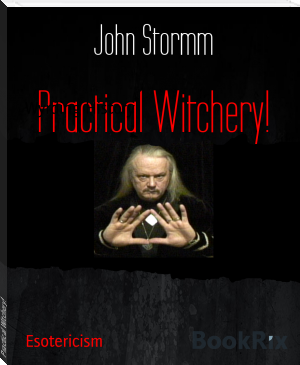

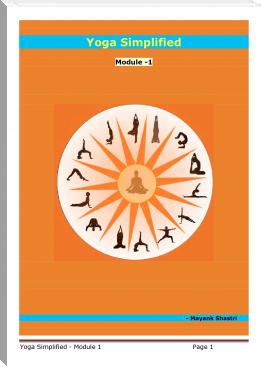
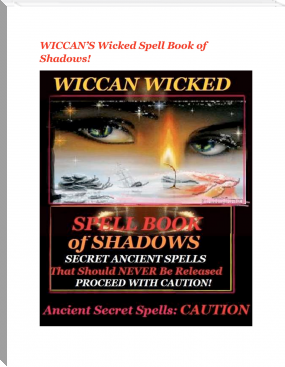
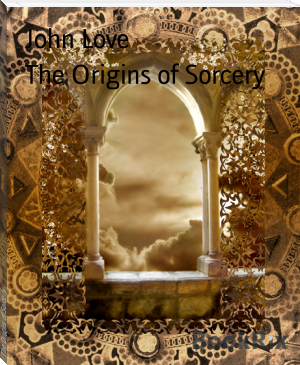
Comments (0)